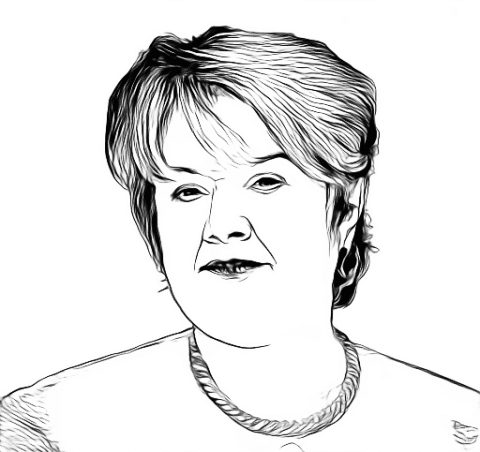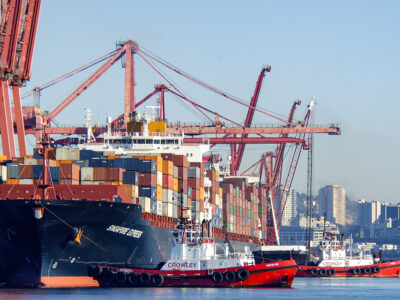How green is your job? As the world is seeking to become more sustainable and aiming for Net Zero, the jobs of the future are likely to be a lot greener than the jobs of the past. Sure, as a report from Deloitte reminds us, many jobs are under threat from the climate extremes that we are experiencing across the world and from the economic transition to net zero.
But every challenge brings an opportunity, and the report goes on to point out that with coordinated and rapid decarbonisation and the right policies, more than 300 million additional green jobs could be created by 2050.
So, what are these jobs, and do we have enough people ready to do them? Meeting increased energy demand while limiting the increase in average global temperatures (ideally to 1.5 degrees above pre-industrial levels, as outlined in the Paris Agreement) will require a massive infusion of green skills throughout the entire energy industry, especially in the renewable energy sector.
The biggest investors in the renewable energy sector are of course the petrocarbon industry, who are acutely aware of the need to find alternative sources of energy. Green talent concentration in the oil and gas industry has steadily increased since 2016, reaching 21 percent in 2023.
Green job growth is not limited to the energy sector. LinkedIn, who in a recent report reviewed job postings across 48 countries, found that the concentration of “green talent” in the workforce – the share of workers who hold a green job or list at least one green skill on their LinkedIn profile – is growing in every one of those countries.
However, the increase in demand for green skills is outpacing the increase in supply, raising the prospect of an imminent green skills shortage. Between 2022 and 2023 alone, the share of green talent in the workforce rose by 12.3 percent across the 48 countries that they examined, while the share of job postings requiring at least one green skill grew nearly twice as quickly – by 22.4 percent.
The definition of a green job is very wide. When I am explaining these jobs to our students, I usually use specific examples such as sustainable agriculture consultants, engineers specialising in energy-efficient systems, environmental compliance officers, waste reduction specialists and water conservation consultants, environmental policy analysts and advocates, carbon credit traders and environmental economists.
These are of course just the tip of the iceberg – the auto industry alone needs thousands of people who can build and maintain electric vehicles – and that is before you start looking at the people who are transforming petrol stations to accommodate them or supplying the technology for charging points at home. And that’s just one industry!
The green skills of the immediate future seem as though they fall into four main categories.
Technical skills: There is often a shortage of skilled technicians and engineers who can design, instal, operate, and maintain renewable energy systems such as solar panels, wind turbines, and geothermal systems. Additionally, professionals with expertise in green building design and construction practices, including LEED certification, are needed.
Digital and Data Analytics: The green economy relies on data-driven decision-making to optimise resource use and reduce environmental impacts. Data analysts and data scientists are needed to process and interpret this data.
Financial and accounting skills. Not only are there a large and growing number of climate-related bonds being issued, and carbon credits that need pricing and trading, the biggest growth industry is disclosure. Environmental disclosure for companies and organisations is fast moving into compulsory territory, with the Task Force on Climate-Related Disclosures (TCFD) leading the way and the International Accounting Standards Board now publishing their proposed new standards IFRS S1 and S2.
Environmental Education and Communication: Trainers, educators, and communicators who can raise awareness and promote sustainable practices are being increasingly sought. There is also a need for experts who can effectively communicate climate science and solutions to the public and policymakers.
Ultimately, though, all our jobs will have to go green, probably by 2030. There is no company or industry that will be untouched by the global move to address the climate emergency, or even to simply deplete less of the earth’s resources.

I am old enough to remember when the digital age really arrived, at the end of the last century, and people had ‘digital’ jobs. Nowadays everything is digital and any company that does not operate a digital-first strategy will not last for very long. So it will be, I predict, with green jobs.
You won’t have to wait until 2030 to see what I mean. Between November 29th and December 12th, it is estimated that 140,000 people will be arriving in the UAE for COP28, to discuss the Paris Agreement and assess progress towards it. When that happens, everyone’s jobs will be involved in supporting the climate talks.
I am setting aside two floors of our campus building as a Climate Hub to host visitors from the UK and further afield, for anyone who will find themselves needing a base during their visit. (If you would like to join us, please email us climatehub@hw.ac.uk). During those two weeks, all our jobs will be a Green Job.









